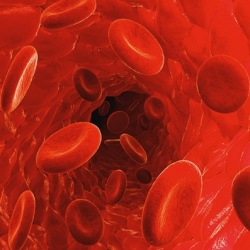
Bill Gates sees enormous opportunities to make progress on some of the toughest health challenges. Gates described what he sees in a keynote to the JP Morgan 36th Annual Healthcare Conference in San Francisco. Since 1990, the world has cut child mortality in half. HIV is no longer a certain death sentence.
Many of the so-called neglected diseases that affect a billion people every year aren’t neglected anymore.
I [Bill Gates] talk about what we’ve accomplished in the past because it makes me [Bill Gates] optimistic about what we can accomplish in the future. But there’s still a lot of room for improvement. This year, 5 million children under the age of five will die, mostly in poor countries. And hundreds of millions of others will suffer from diseases and malnutrition that sap them, and their countries, of their strength and their potential.
Global health is our primary focus at the Gates Foundation—although we also work in a few other areas that are big levers for impact . . . like agricultural development . . . and public education here in the U.S. Over the last five years, we have invested nearly $12 billion in global health.
This includes grants and equity investments in companies with promising technologies that have potential application in global health. We also use creative price and volume guarantees that help the private sector mitigate the risk in developing a new product for which demand is unproven.
Our investments have led to new drugs and vector control tools for malaria . . . accelerated the introduction of new vaccines in poor countries . . . and ensured that millions of people in the developing world have access to long-lasting contraceptives and the best-available antiretroviral treatment for HIV.
We are also working with the WHO and regulatory entities in China and Africa to eliminate systemic barriers that slow development of new products and access to new markets. A few years ago, we looked at the data, which showed that in high-income countries it took 6-12 months to get a product registered—compared to 4-7 years in low-income countries. We realized this was as big a challenge as anything else in getting new health solutions to the people who need them.
I’m particularly excited about our work with the Chinese FDA to provide a more efficient and consistent mechanism for testing, review, and approval of medicines and vaccines—using international standards. This would be a game changer in getting quality products into and out of China.
Gates noted that HIV virus’s genetic machinery can be used as a tool to modify T-cells so they are capable of attacking specific cancers.
Gates is confident that a decade from now, we’ll see a headline that says: “How Cancer Tools are Helping Cure HIV.”
